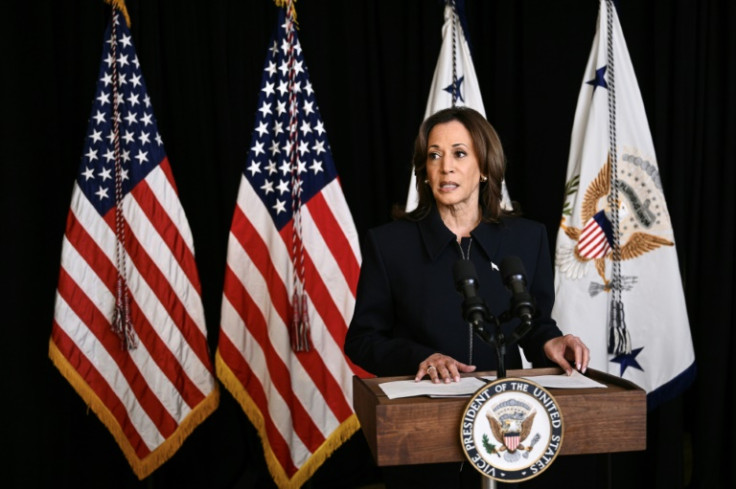Arab American Leaders Call On Harris To Separate From Biden's Israel Policy

Vice President and Democratic presidential nominee Kamala Harris met with Arab American and Muslim leaders in Flint, Michigan, on Friday, to discuss their concerns about U.S. support for Israel's military actions in Gaza and Lebanon.
According to CNN, the discussion, initially planned for 10 minutes, extended to 20, as noted by Wa'el Alzayat, the CEO of Emgage Action, an organization focused on increasing the Muslim American voter turnout.
Harris voiced her significant concern about the worsening humanitarian crisis in Gaza and the civilian deaths caused by the ongoing conflict. She also discussed initiatives to facilitate peace and avert a larger regional conflict during the meeting, according to a Reuters report.
The Emgage Action leader noted that he and other Arab American leaders had been reached out to and invited in the last 48 hours. He emphasized that their message to Harris was straightforward: she must illustrate a difference between her stance on this issue and the existing administration's policies, which they oppose.
Although the meeting featured positive interactions, it faced some controversies. Several prominent leaders turned down the invitation, while others raised concerns about their exclusion. Hala Hijazi, a close friend of Harris who has lost many family members in Gaza, also opted not to attend. James Zogby, a co-founder of the Arab American Institute and a Democratic National Committee member for more than three decades, shared with CNN that he opted not to attend Friday's meeting with Harris. He explained that his decision stemmed from increasing frustration with what he perceives as a campaign more focused on image rather than truly addressing the anger and anxiety felt by Arab American voters. Zogby highlighted the importance of meaningful engagement with this community, emphasizing that their concerns deserve more than just superficial attention in the political discourse.
This meeting is crucial for her presidential campaign as she seeks to regain the trust of a demographic that was instrumental in the Democratic victory in 2020 but is now at risk of pulling their support.
As the presidential election draws closer, Harris is facing a competitive challenge from former Republican President Donald Trump. Both candidates are reportedly attracting comparable levels of support from Arab Americans, a vital demographic that Harris must engage rather than alienate.
The criticism directed at Biden and Harris has been mounting, particularly regarding their perceived lack of action in addressing Israel's military campaign. This sentiment is particularly strong within the Arab American community, where many feel that the administration's stance has not adequately reflected their concerns. The dissatisfaction could have significant implications for Harris's campaign as she seeks to maintain and strengthen her support among this crucial voter base.
Michigan, which Biden won by a narrow margin in 2020, will once again be a critical battleground this November, particularly given its large Arab American population. Emgage Action endorsed Harris last month, though they acknowledged a "strong disappointment" with the Biden administration's approach to Gaza.
© Copyright IBTimes 2025. All rights reserved.





















